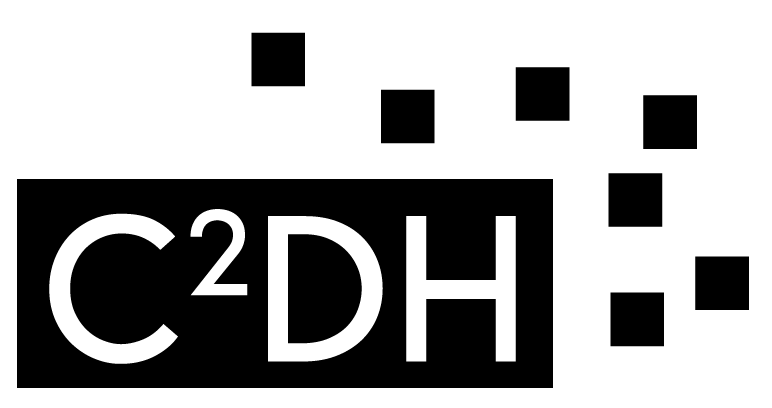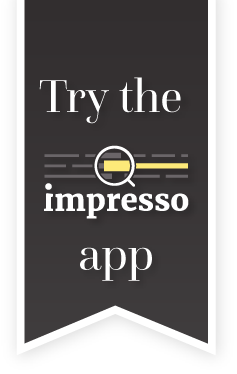Associated partners
impresso receives high-quality content from national libraries, archives and newspapers across Europe. A team of associated historians ensures that impresso meets the needs and quality standards of its target audience.
Swiss National Library, SNL |
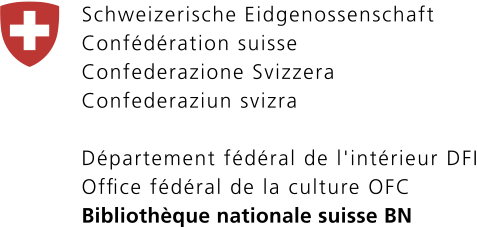 |
|---|
www.nb.admin.ch — As a memory institution of the Swiss Confederation, the Swiss National Library (SNL) is ready to address new digital realities and willing to promote innovative digital scholarship practices. Since 2006, the SNL has been digitising its collections and making them available online, with a strong emphasis on serials and the press, for which there is significant user demand. In collaboration with cantonal libraries and publishers, the Swiss National Library set up a platform for online newspapers in 2011, recently improved and refactored: e-newspaperarchives.ch. It also actively supported the DHLAB’s project based on Le Temps digital archives, which resulted in a new interface for the journal’s historical archives,www.letempsarchives.ch
Role: The SNL will provide the consortium with access to digitised newspapers and periodicals, offer information and comments on the current status and requirements of its platform and provide feedback on the prototypes developed by the consortium. It will also take part in workshops where infrastructure providers (libraries, archives), digital scholars (historians) and text miners will share and exchange experience, and it will benefit from the enrichment of newspaper content and the availability of open-source prototypes.
Participants: Marie-Christine Doffey (Director), Liliane Regamey (Head of User Services)
National Library of Luxembourg, BnL. |
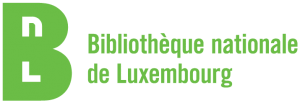 |
|---|
www.bnl.public.lu — The National Library of Luxembourg has been addressing the digital challenge for more than a decade, both as a heritage library and as the coordinator and service provider of the bibnet.lu network of Luxembourg libraries, including the library of the University of Luxembourg. The BnL started digitising its heritage collections in 2002 and since then has been continuously adapting its specifications and methods to reflect changing user requirements and available technologies. Conservation issues and growing demand from researchers and the general public meant that priority was given to the digitisation of the Luxembourg press. To date, 510,000 pages with text recognition and 200,000 pages in image mode are available on the BnL’s website www.eluxemburgensia.lu.
Role: The BnL will support the project by providing the enriched full-text data of its digitised newspaper and periodical collection, which spans the mid-19th to the 20th century. The BnL will share information on the development of its current portal and its aims and plans for data enrichment, while also giving feedback on the new prototypes developed by the project. It hopes to identify opportunities for the improvement of its existing portal, which is scheduled to undergo a technological and functional overhaul. The BnL will also provide input about the process of applying improvements developed by the project to its digital collections. The institution is willing to participate in workshops and conferences dealing with questions raised by the project.
Participants: Monique Kieffer (Director), Carlo Blum (Head of IT).
State Archives of Valais, AEV. |
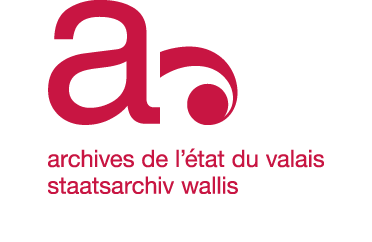 |
|---|
www.vs.ch/web/culture/aev — The State Archives of Valais have an administrative, historical and cultural mission. AEV is responsible for collecting, classifying, inventorying, preserving and valorising the archival documents belonging to the state and produced by the cantonal administration, as well as other documents concerning the history of Valais and Valais society.
Role: AEV will provide the consortium with access to digitised newspapers and periodicals from Valais, express wishes regarding historical newspaper interfaces and give feedback on the new prototypes developed by the consortium. AEV will participate in project workshops and benefit from enriched newspaper content as well as the availability of open-source prototypes.
Participants: Alain Dubois (Cantonal Archivist), Simon Roth (Scientific Librarian, Médiathèque du Valais).
Swiss Economic Archives, SWA. |
 |
|---|
// www.ub.unibas.ch — The SWA (Schweizerisches Wirtschaftsarchiv), founded in 1910, maintains business archives and document collections on specific topics, companies, associations and individuals. The focus of the SWA collections includes Swiss economic policy and economic development and the history of Swiss economics and companies. In addition to newspaper clippings, collections include studies, reports, PR material and other publications from companies, associations, official offices and research institutes. A major project currently under way at the SWA revolves around the digitisation of newspaper extracts and some archive documents.
Role: SWA will provide optimised access to digitised cultural heritage, newspapers and periodicals in particular. SWA will help to identify opportunities for the improvement of existing portals and to identify and serve user needs, and give feedback on prototypes developed by the consortium. SWA will participate in project workshops and benefit from enriched newspaper content as well as the availability of open-source prototypes.
Participants: Irene Amstutz (Head of the University of Economics at the Swiss Economic Archives).
Le Temps |
 |
|---|
www.letemps.ch — Le Temps, the leading newspaper in French-speaking Switzerland, was launched in March 1998. Its predecessors, the Journal de Genève and La Gazette de Lausanne, played an important role in the history of the region in the last 200 years, with the first archive dating back to 1 February 1789. Ten years ago, the management team at Le Temps therefore decided to digitise and make accessible its entire historical archives. The process involved the Swiss National Library, several sponsors and many years of work. In 2016, the www.letempsarchives.ch website was completely redesigned with one objective in mind: making the archives as accessible as possible to the general public.
Role: Le Temps will provide access to its digitised archives and actively support the design of the historical newspaper exploration interface by giving suggestions and feedback on prototypes developed by the consortium.
Participants: Gaël Hurlimann (Editor-in-Chief of Digital Content).
Neue Zürcher Zeitung, NZZ. |
 |
|---|
www.nzz.ch — Since 1780 the NZZ has provided its readers with mainly political and economic information. With the emergence of the internet the NZZ started to develop digital information channels, and it will soon be switching to a digital-only product offering to reflect changing user behaviour. Part of this strategy involves transforming the entire paper archive to a digital archive (via scanning/OCR methods).
Role: NZZ supports impresso by giving full access to all existing digital newspaper assets from 1780 to 1950 (strictly restricted to internal project distribution). NZZ will also provide the consortium with feedback on the status quo and needs of its current portals, and on new prototypes developed by the consortium. The newspaper will be given access to improved text after the application of automatic OCR post-correction and enriched newspaper content following the use of text mining tools. NZZ will also participate actively in workshops where infrastructure providers (libraries, archives), digital scholars (historians) and text miners exchange views.
Participants: Ruth Haener (Head of the Archive and Services Department), André Maerz (Project Manager for Convergence).
History department, University of Lausanne, UNIL. |
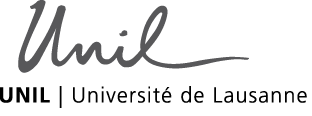 |
|---|
// www.unil.ch/hist — For more than a decade, the University of Lausanne’s History Department has developed extensive expertise in media history and has been actively engaged in research and teaching activities in digital humanities. As well as exploring the history of the media, the department encourages the increasingly systematic and methodologically rigorous integration of digital audiovisual and media sources into contemporary Swiss history.
Role: Historians from UNIL will use the tools and interfaces developed in the course of the project for teaching activities in the field of media history, the history of Swiss foreign policy and international cultural relations, as well as the political and cultural history of European integration (WP6.5). They will also contribute to discussions on the epistemological and methodological implications of the use of text analysis tools, interfaces and visualisations, and will organise and contribute to workshops on these topics (WP6.4).
Participants: François Vallotton (Full Professor and Vice-Dean of the Faculty of Arts), Raphaëlle Ruppen Coutaz (Lecturer).
infoclio |
 |
|---|
www.infoclio.ch — infoclio.ch is the professional portal for the historical sciences in Switzerland. It was created on the initiative of the Swiss History Society (SSH) and the Swiss Academy of Humanities and Social Sciences (SAHS). Its objectives are to develop a digital infrastructure for the historical sciences in Switzerland, to increase the visibility of Swiss historical research on the Web and to facilitate access to digital tools and methods for researchers in the humanities.
Role: infoclio will work in close collaboration with the consortium on tasks related to the interplay between computer scientists and historians and the design and reception of digital interfaces for the exploration of historical data. More precisely, infoclio will participate in workshops where infrastructure providers (libraries, archives), digital scholars (historians) and text miners discuss and exchange views. It will be responsible for preparing and running the second and fifth workshops on prototypes and epistemological issues and the sixth workshop on the final evaluation of developed systems (see project timeline).
Participants: Enrico Natale (Managing Director).
see also
Team — Partners — Contributors



